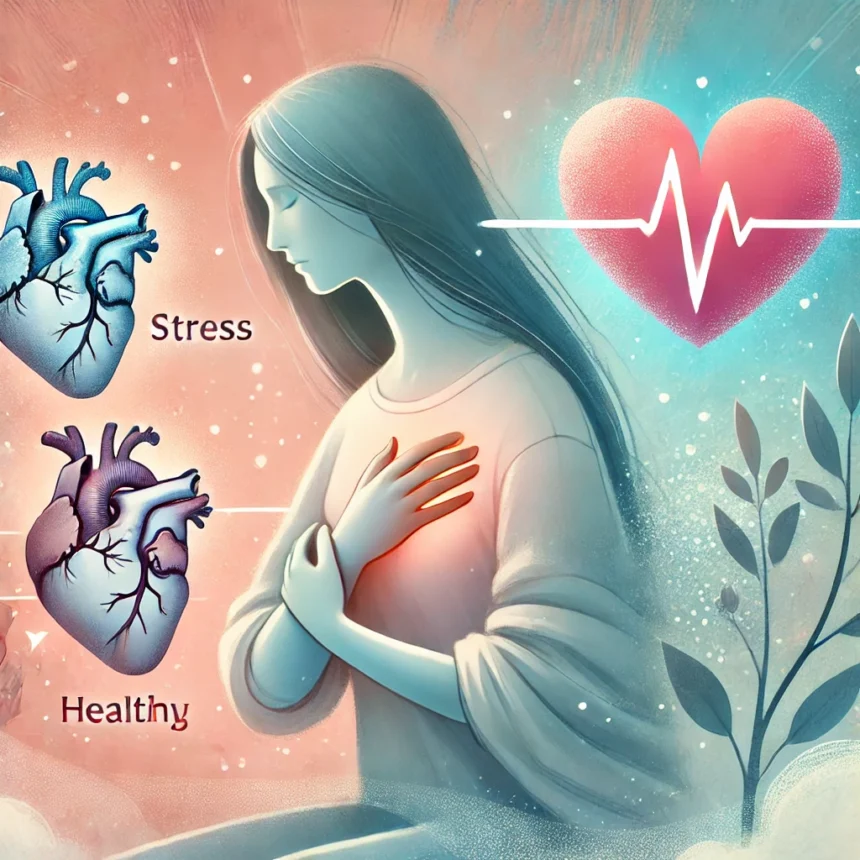The painful news of Mrs. Oromoni’s death from heart failure, following the untimely death of her son Sylvester in 2021, emphasizes the strong link between emotional and physical health. This story highlights how stress and sorrow can have a substantial impact on heart health, especially for people dealing with long-term emotional discomfort.
MUST READ;Restless Leg Syndrome (RLS): You are what you eat!
Understanding the Relationship Between Stress and Heart Health
Grief and persistent stress can cause major cardiovascular problems, including heart failure and stress-induced cardiomyopathy (sometimes known as “broken heart syndrome”). Prolonged exposure to stress chemicals, such as cortisol, can;
Elevate Blood Pressure: Persistent stress keeps the body in a heightened state of alert, which can increase blood pressure and strain the heart.
Promote Inflammation: Chronic stress triggers inflammatory responses, potentially leading to conditions like atherosclerosis, which narrows the arteries and increases the risk of heart attacks.
Weaken the Immune System: A weakened immune system makes it harder for the body to recover from illnesses and may exacerbate pre-existing heart conditions.
Symptoms of Stress-Related Heart Conditions
Stress-induced cardiac problems are generally characterized by a variety of symptoms, including persistent chest pain or tightness, which can be misinterpreted for a heart attack. Individuals may also have irregular heartbeats or palpitations, which are accompanied by weariness and shortness of breath, making daily activities difficult. Sudden episodes of dizziness or fainting are also warning indicators that should not be overlooked, since they can signify severe stress-related heart issues.
Prevention and Coping Strategies
Individuals experiencing bereavement or emotional distress should seek professional care, such as psychotherapy or counseling, to reduce their risk of stress-related heart disorders. Cognitive-behavioral therapy (CBT), in particular, is useful at managing stress and providing techniques for dealing with emotional difficulties. Stress management strategies such as mindfulness meditation, yoga, and deep breathing exercises can help alleviate the physiological impacts of stress. Journaling or engaging in creative hobbies can also serve as emotional outlets and aid in trauma recovery.
Maintaining a healthy lifestyle is critical. A balanced diet high in fruits, vegetables, and omega-3 fatty acids can promote cardiovascular health, while regular physical activity like walking, running, or swimming can reduce stress and increase general well-being.
Another effective method is to establish and rely on a support network. Friends, family, and support groups can offer emotional comfort and a sense of belonging during difficult times. Sharing experiences with others who have been through similar situations can be especially comforting.
Finally, regular health checks are essential. Routine check-ups can detect early warning signals of cardiovascular disorders, and taking recommended drugs for pre-existing illnesses like high blood pressure or heart disease assures efficient management.
In conclusion, the terrible chain of events in the Oromoni family highlights the need of prioritizing both mental and physical health. Chronic mourning is not just an emotional issue, but it also increases the risk of serious medical conditions. As we reflect on this story, we must urge for improved mental health support services, particularly for those dealing with traumatic situations. Public health campaigns should attempt to educate communities about the link between mental health and heart health, focusing on early intervention and access to mental health resources.


